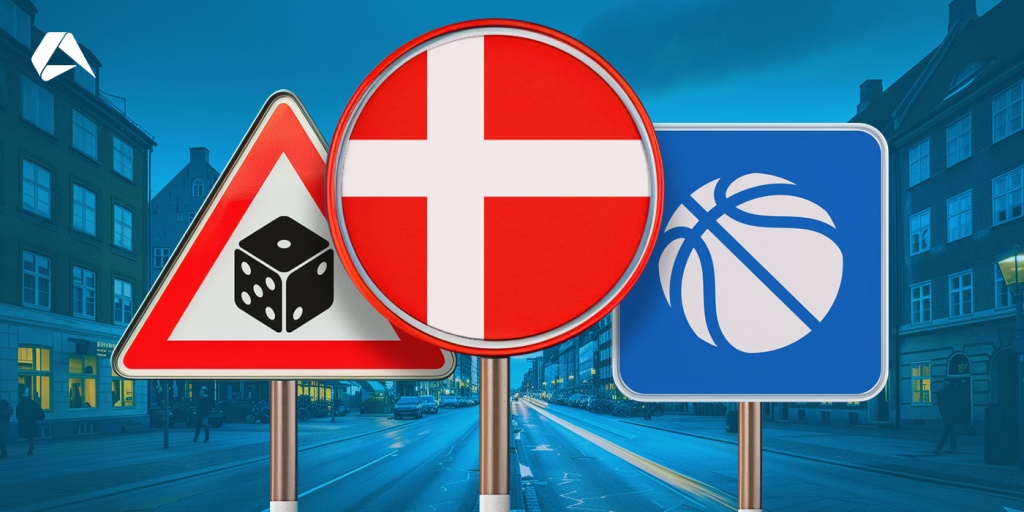Overview Gambling Laws in Denmark: Regulation and Legality for Operators in 2024
Denmark's gambling market in 2024 offers significant opportunities for iGaming operators, marked by its well-regulated environment and consistent growth. The market's evolution from a state monopoly to liberalisation, particularly with the Danish Gambling Act of 2012, has created a structured yet prosperous landscape. Overseen primarily by the Danish Gambling Authority (Spillemyndigheden), Denmark's legal framework aligns with EU standards, ensuring a balance between market freedom and robust player protection.
Operators benefit from a transparent regulatory system, competitive licensing fees, and a straightforward flat tax rate of 28% on gross gaming revenues, which are attractive compared to other European jurisdictions. Compliance is key, with strict mandates on responsible gambling measures (e.g., ROFUS, StopSpillet), advertising regulations, and robust anti-money laundering (AML) practices. While the market features established players and intense competition, Denmark's high digital literacy and consumer trust present a sizeable and engaged customer base for new entrants. The application for a licence is a structured process, typically taking three to six months, requiring adherence to stringent financial, technical, and ongoing compliance standards.
Online gambling is well integrated into Danish society, attracting high participation rates from all demographic groups. Moreover, consistent growth in online gaming is driven by a shift from traditional betting combined with a regulatory environment that provides favourable conditions for new operators considering entry to one of Europe's top 10 online betting markets in 2024.
This article explores gambling laws and regulations in Denmark, providing comprehensive guidance on market conditions, market entry and the pros and cons for iGaming operators.
The History of Gambling in Denmark
The roots of organised gambling in Denmark can be traced back to the Middle Ages when card games and lotteries first appeared. These types of games were popular among both nobility and common folk, who viewed such pastimes as a social activity and a means of entertainment.
By the 19th century, gambling activities like lotteries became organised to fund public projects. Horse racing also gained popularity at this time, drawing large crowds wagering substantial amounts. As gambling moved forward into the 21st century, the unregulated nature of gambling led to concerns about fraud and the financial well-being of Danish citizens and the need for regulation became a topic for debate.
In response, the Danish government began instituting controls to oversee gambling activities. The most significant legislative development came in 1948 with the enactment of the first comprehensive gambling law. This law established a state monopoly over most forms of gambling, aiming to curb illegal betting and ensure revenue was directed towards public welfare. This coincided with the formation of Danske Spil, a state-owned company, which held a monopoly over most forms of betting and lottery.
This remained the status quo in the years that followed until the introduction of the Danish Gambling Authority, known as Spillemyndigheden, in the year 2000. The establishment of the DGA took a significant step towards creating a more structured and controlled gambling environment, which was soon followed by the implementation of the Danish Gambling Act in 2012.
The Gambling Act of 2012 ultimately led to greater liberalisation of the Danish gambling market, allowing private operators to apply for licences under strict regulatory conditions. This transition reflected a shift in public attitude towards a regulated yet prosperous gambling environment while maintaining Danske Spil’s monopoly over lotteries and certain betting activities. Since then, Danish courts have moved to enforce tighter regulations over unlicensed online gambling sites.
Here’s a timeline of the key milestones in Denmark's gambling history:
1920s: First organised gambling activities in lottery and betting
1948: Formation of Danske Spil, creating a state-owned monopoly
2000: The establishment of the Danish Gambling Authority (DGA)
2010: Introduction of new legislation to liberalise gambling
2012: Implementation of the Danish Act on Gambling
2017: Tighter regulations against unlicensed gambling sites
2024: Ongoing amendments to combat fraud and laundering
The Current Landscape in 2024
Today, Denmark's legal framework for gambling is very much aligned with EU standards. It boasts a well-regulated market that includes online casinos, sports betting, and lotteries. Moreover, the Danish approach stimulates competition and is often cited as a model for balancing market freedom with strong player protections all regulated by the Danish Gambling Authority (Spillemyndigheden).
Operators must obtain a licence and comply with stringent regulations to ensure player protection and fair play. Conversely, unlicensed gambling operations, including unauthorised online gambling sites and underground betting activities, are illegal. The DGA employs strict measures, such as blocking unlicensed websites and financial transactions, to enforce compliance and maintain the integrity of the legal gambling market. Furthermore, unlicensed operations are subject to severe penalties for acting outside the law.
The comprehensive nature of Denmark’s legal gambling framework has resulted in a high level of consumer trust in regulatory bodies among the Danish population, which has manifested in a greater acceptance of regulated gambling activities. All forms of gambling are legal in the country, except for those specifically designed for or marketed towards minors.
Regulations and Compliance
Gambling in Denmark is defined by a series of regulations shaped by the Danish Gambling Act. This legislation has effectively liberalised the market, allowing private operators to apply for licences from the Danish Gambling Authority - Spillemyndigheden. To obtain a gambling licence in Denmark, operators must comply with several key laws and regulations.
Responsible Gambling Measures
Compliance with responsible gambling measures is a top priority in Denmark. This includes offering self-exclusion options, deposit limits, and mandatory breaks, as outlined in the Responsible Gambling Code. Further to this, key initiatives are widely accessible to help consumers with gambling-related issues. Among them include ROFUS, the national self-exclusion registry enabling players to voluntarily exclude themselves from all gambling activities and StopSpillet, a helpline providing counselling and support. Furthermore, operators are mandated to provide regular monitoring and intervention strategies to identify and assist at-risk players.
Advertising Regulations
iGaming operators must adhere to strict advertising regulations in Denmark to reflect responsible marketing practices. For starters, advertising must not target minors or vulnerable individuals, and it must clearly display information about responsible gambling and support services like StopSpillet. Furthermore, misleading promotions, such as suggesting gambling can solve financial problems, are strictly prohibited. In addition to this, all advertisements must include the operator's licence number to provide transparency and accountability.
Executive Orders on Online Casino and Betting
Operators must adhere to the Executive Orders on Online Casino and Betting, which detail specific operational and technical standards. These orders set forth high standards for iGaming operators. They include requirements for secure and fair gaming systems, regular audits, and data protection protocols. Operators must ensure player identification processes are in place to prevent underage gambling and comply with anti-money laundering regulations. Operators must also provide responsible gambling tools and information on their platforms.
Ongoing Compliance and Enforcement
To maintain a gambling licence in Denmark, operators must adhere to a number of ongoing compliance requirements, including regular audits and robust anti-money laundering (AML) measures. Non-compliance can lead to severe enforcement actions, such as substantial fines and licence revocation.
Anti-Money Laundering (AML) Practices:
All operators must apply robust Anti-Money Laundering (AML) measures per the Anti-Money Laundering Act to prevent financial crimes. These measures include conducting thorough customer due diligence (CDD) to verify player identities, monitoring transactions for suspicious activities, and reporting any such activities to the relevant authorities. Operators must also maintain detailed records of transactions and implement ongoing staff training on AML compliance.
Regular Audits and Reporting
It is also necessary for gambling operators to undergo regular audits and adhere to reporting requirements as mandated by the Danish Gambling Authority. These audits ensure compliance with operational and technical standards, financial integrity, and responsible gambling practices. Operators must submit detailed reports on their activities, including financial transactions, player protection measures, and anti-money laundering efforts. This ultimately ensures transparency and maintains the integrity of the gambling market, fostering trust among stakeholders and consumers alike.
Fees, Taxes and Financial Obligations
Denmark's gaming licence fees and taxes for iGaming operators are notably competitive compared to some other European jurisdictions, which often have higher and more complex tax regimes. This, among other reasons, makes Denmark an attractive option for operators.
Licence Application fees
A DGA licence for betting covers both online and land-based sales of betting products and is valid for up to five years. The application fee is DKK 315,300 (approximately €42,270) and must be paid upon application submission at the latest. If you are applying for a combined licence to provide both betting and online casino entertainment, operators must pay a total application fee of DKK 441,400 (approx. €59,177).
Licence Renewals
Licence renewals incur an application fee of DKK 126,100 (approximately €16,905), which must be paid at the latest at the time of submission. Operators applying for renewal of permission to offer both betting and online casino games must pay a total fee of DKK 157,700 (approximately €21,141).
In addition to the application fee, an annual fee calculated on the basis of the gambling operator’s gross gaming revenue (GGR) shall be paid.
Revenue Restricted Licences
Smaller operators can also apply for a revenue-restricted licence from the DGA to provide online casino or online betting, valid for up to one year at a time. To qualify, gross gaming revenue (the amount wagered minus the winnings returned to players) must not exceed DKK 1 million (approx. €134,000).
When applying for this type of licence, note that it is only covered by the Danish Gambling Act and not the executive orders on online casinos and betting. Therefore, the technical requirements for a revenue-restricted licence are limited, and the documentation requirements are not as extensive as for the five-year licences.
Ongoing Financial Obligations
In addition to licence fees and taxes, iGaming operators in Denmark face ongoing financial obligations, including costs for regular audits and compliance with anti-money laundering (AML) regulations. It will be necessary to invest in secure responsible gambling measures and player protection tools, like self-exclusion for instance. Furthermore, operators should expect to incur costs related to data protection compliance and ongoing contributions to responsible gambling initiatives.
The latest information on licences and fees for betting and online casino games is available from the Spillemyndigheden website.
Taxes
In Denmark, the tax on gross gaming revenues is designed to be straightforward, promoting transparency and ease of compliance. iGaming operators are required to pay a tax of 28% on their gross gaming revenues. This tax is applied at a flat rate across all types of online gambling activities, ensuring a level playing field within the market.
Irrespective of the type of licence acquired, gambling operators must register with the Danish Business Authority by using the registration form no. 29.063, which is available on the Danish Tax Agency’s website. Regular reporting is thereafter required of gross gaming revenues (GGR) to the Danish Tax Authority (SKAT) on an ongoing basis.
Most online gambling platforms do not deduct taxes before paying out prizes or cash winnings. Subsequently, players are required to declare all winnings and pay the associated tax on them.
Danish Gambling Regulatory Authorities
Denmark has a well-established culture of trust and transparency between regulators and operators. This cooperative environment fosters compliance and innovation, allowing operators to work closely with the Danish Gambling Authority to address challenges and enhance player protection.
Here are the leading governing bodies regulating the gambling market in Denmark:
The Danish Gambling Authority (Spillemyndigheden)
The Danish Gambling Authority - Spillemyndigheden, is the primary regulatory body overseeing gambling activities in Denmark. Its overriding duty is to license and monitor gambling operators to ensure compliance with national laws and regulations. The Authority enforces strict standards for player protection, responsible gambling, and anti-money laundering measures. Additionally, it acts as an advertising regulator, conducts regular audits and inspections, provides guidance to operators, and handles consumer complaints. By maintaining rigorous oversight, Spillemyndigheden ensures a transparent, fair, and secure gambling environment, fostering trust among stakeholders and protecting the interests of Danish players.
NSK (National enhed for Særlig Kriminalitet) - AML Regulator
The National Enhed for Særlig Kriminalitet (NSK), is a specialised unit within the Public Prosecutor for Special Economic and International Crime (Statsadvokaten for Særlig Kriminalitet (SSK)). It plays an instrumental role in regulating anti-money laundering (AML) in the gambling sector. NSK oversees the implementation and enforcement of AML policies for iGaming operators, ensuring they comply with stringent Danish and international standards. Its responsibilities include conducting thorough investigations into suspicious activities ensuring that operators have robust AML measures in place, such as customer due diligence, transaction monitoring, and reporting obligations. Their oversight helps prevent financial crimes, safeguarding the industry from illicit activities.
Datatilsynet - Data Protection Authority
Datatilsynet, otherwise known as the Data Protection Authority, plays a key role in the oversight and protection of personal data within the gambling sector. In 2024, their responsibilities include ensuring that iGaming operators adhere to stringent data protection regulations, particularly the General Data Protection Regulation (GDPR). Datatilsynet’s role extends to safeguarding sports bettors' personal information, requiring operators to implement stringent data security measures, obtain clear consent for data processing, and ensure the right to data access and deletion. Datatilsynet regularly audits operators and enforces compliance through fines and sanctions. This level of oversight fosters a secure environment for bettors, reinforcing trust in Denmark's regulated gambling industry.
Financial Supervisory Authority (FSA)
The FSA’s core duty as it relates to online gambling in Denmark is to enforce anti-money laundering regulations. This requires operators to conduct thorough customer due diligence, monitor transactions, and report suspicious activities. Their stern oversight helps prevent financial crimes within the gambling sector to maintain industry trust and integrity. iGaming operators must also collaborate with the tax authority (SKAT) to ensure proper reporting and payment of gambling-related taxes. This involves maintaining detailed financial records, submitting regular tax returns, and adhering to specific tax regulations.
Consumer Ombudsman
The Consumer Ombudsman plays an influential role in regulating advertising and marketing practices within the Danish gambling industry. Their core responsibility is to ensure that all promotional activities from iGaming operators are fair, transparent and do not mislead consumers. This includes scrutinising advertisements to prevent false and misleading claims and ensuring compliance with responsible gambling guidelines. The ombudsman provides guidelines for the industry and has the authority to conduct investigations and impose sanctions for non-compliance. Their oversight upholds high ethical standards in the protection of consumers, further supporting public trust.
Opportunities for iGaming Operators
The Danish iGaming market presents significant opportunities and growth potential for operators. Its favorability is underpinned by its transparent regulatory framework, competitive tax rate, and straightforward entry costs compared to other European jurisdictions.
Like other Scandinavian countries, the Danish population has shown a strong uptake of online gambling, supported by the country's advanced infrastructure and high levels of digital literacy. This creates a sizable and engaged customer base for operators to tap into with consistent growth driven by a preference for online gambling over traditional forms of gambling.
However, operators should consider that Denmark is a well-established market, featuring key players such as Danske Spil, Bet365, and Unibet, which maintain a significant market share. Spillemyndigheden’s regulatory approach promotes a level playing field to encourage new entrants and stimulate competition.
Overall, Denmark's iGaming market offers lucrative opportunities for operators comparing favourably to many other EU markets.
Danish market advantages
-
Transparent and clear regulatory framework ensures fair play.
-
A large and engaged online gambling audience.
-
Competitive flat tax rate of 28% tax on gross gaming revenues.
-
Low and clear licensing costs compared to other EU markets.
-
Well-established online market with consistent growth trends.
-
Technically advanced with high trust and market acceptance.
Disadvantages of the Danish market
-
Intense competition makes it challenging for new entrants.
-
Firm advertising restrictions limit marketing strategies.
How to Apply for a Gambling Licence in Denmark
Similar to all leading gambling jurisdictions, applying for a Danish gaming licence involves a structured process. In Denmark, this is governed by the Danish Gambling Authority (Spillemyndigheden), where iGaming operators can apply for various types of licences, including online casino, sports betting, and land-based casino licences.
Here are the conditions and restrictions for operators who wish to obtain a legal gaming licence in 2024.
Financial standards
Operators must hold and maintain adequate financial resources to ensure the stability and fairness of their operations.
Technical standards
The implementation of robust technical systems is necessary to ensure game fairness, prevent fraud, and protect player data.
Regular audits
Licensed operators are subject to regular audits and must provide detailed reports to the Danish Gambling Authority.
Responsible gambling measures
Operators must offer self-exclusion options, deposit limits, and provide information about responsible gambling resources.
Advertising restrictions
Marketing practices must comply with Danish regulations, ensuring they are not misleading and do not target vulnerable populations.
The Application Process
The application process for a gambling licence in Denmark involves several key steps. Here is an overview of the steps to take:
Step 1: Prepare documentation
Identify the type of licence needed and prepare documentation as required. Typically, this includes a comprehensive business plan with financial statements demonstrating financial stability. Documentation of the company's ownership structure and details of key personnel, along with detailed information about the technical systems and software used, will also be needed.
Step 2: Register and create an account with the Danish Gambling Authority’s online website.
Step 3: Submit the application
Download and complete the application form, upload all required documents, including business plans, financial statements, and technical specifications.
Step 4: Pay the application fee
Pay the non-refundable application fee, which is variable depending on the type of licence applied for.
Step 5: Compliance documentation
Demonstrate compliance with Danish regulations, including responsible gambling measures, anti-money laundering (AML) protocols, and data protection standards.
Step 6: Review and assessment
The DGA will review the application, conduct background checks, and assess the operator’s ability to meet regulatory requirements.
Step 7: Respond to requests for additional information
Be prepared to provide additional information or clarification if requested by the Danish Gambling Authority (DGA) during the review process.
Step 8: Await licence decision
The DGA will notify the applicant of the decision. If approved, the operator will receive their licence and can commence operations.
Post-application requirements and notes
The DGA typically takes between three to six months to process and approve a gaming licence application. This timeline can vary depending on the completeness and complexity of the operator's business model. To expedite the process, it is important for applicants to ensure all required documentation is accurate and complete at the time of submission.
To maintain a licence, operators must:
-
Regularly submit financial and operational reports to the Danish Gambling Authority.
-
Undergo periodic audits to ensure continued compliance with all regulatory requirements.
-
Implement and maintain responsible gambling measures, such as self-exclusion programs and deposit limits.
Market Access in 2024
Altenar is an award-winning sportsbook provider to hundreds of online sports betting websites in more than 30 countries worldwide, including notable success in Nordic countries like Sweden and Denmark.
Contact Altenar today to commence your journey towards market entry and continued growth for your brand in Denmark.
Disclaimer
This information is not intended to be legal advice and is solely extracted from open sources. It should not be relied upon as a substitute for professional legal advice and Altenar does not accept any liability in relation to its use.













